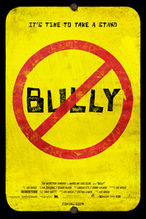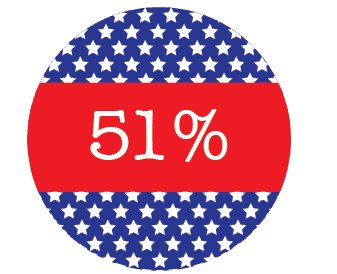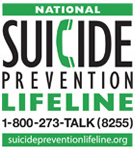
If, like me, you thought bullying wasn’t a topic that required immediate discussion in your house, watch this clip from Ellen, in which she interviews one of the families featured in the controversial film BULLY. David and Tina Long lost their eleven year old son, Tyler, to suicide as a result of enduring four years of bullying by his peers. The makers of this film and a great many supporters tried unsuccessfully to get the R rating it earned, due to the f-word being used to pointedly depict the violence that too often occurs while our kids are at school, changed to PG-13 so it’s target audience of middle and high school students and their parents would be more likely to see it. The segment states that "13,000,000 of our children are bullied every day, and 3,000,000 of them end up staying home each month because they can’t face what happens at school."
Whether you see your child as potentially one extreme or the other, or comfortably in-between --which many of us know from personal experience is an illusion that can change rapidly with the breath of a rumor about being different or weak in any way-- will you take him or her to see BULLY, despite its R rating? How about The Hunger Games? Did you or will you take your children or allow them to see the larger than life version of the hugely popular book that depicts children fighting for their survival to the death, in only the most PG-13 way? Common Sense Media gives both movies the nod for age 13, and I pray that parents won’t let BULLY’s rating stop them from investing in another worthy trip to the movies when it is released, Friday, March 30.
Times are hard. If we want to go to movies, buy great books and feed those ravenous little mouths, nasty though they may occasionally be, we parents have to work. I might one day have to send my kid to school on the bus, or allow him to walk home from school alone where I am powerless to protect him. Every day, I must send him out onto the playgrounds and into the school halls of the world, and I can’t be there. I can’t be there to teach him to respect and have empathy for his peers, and I can’t be there to help him deal with it when he becomes the outlet for some Brutus’s or Lucy Van Pelt’s frustration, as happened to my son last week. That’s likely what made me pay attention, if I’m a little late to the swing set. And I can’t be there every moment to help him know what to do if he’s caught in the middle.
Most of the time, my family could probably be described as in that quiet little section between the bullies and the bullied, which is likely true of the majority of us. We may enjoy certain anonymity because we go through life being what society considers fairly normal. Because of that, I may have deluded myself into thinking that such a topic wasn’t important to address with my child. Or maybe I felt I could address it in the future, because until last week chances seemed good that we wouldn’t be directly affected by such a problem. But maybe those of us in-between the victims and the bullies, those of us in the majority, are exactly the ones who need to pay attention. There is power in numbers, and those of us in the middle are the very ones it will take to stand together and put an end to bullying in our children’s schools and in our communities. What did they do in the old west, when a really bad guy was tormenting a town? They gathered a posse to go after him and his gang. Why? Because there is strength in numbers.
Posse: Origin: 1575–85; < Medieval Latin posse power, force, noun use of L infinitive: to be able, have power, equivalent to pot- ( see potent) + -se infinitive suffix
According to a study referenced here by WebMD, brutality toward one’s peers is often linked with an atmosphere of brutality or abuse at home. I’m probably also guilty of going through life with blinders on. Whether I’m shocked to hear about a victim acting out in violence or taking his/her own life, or absolutely floored one day when another parent tells me that my child is the potential bully, I tend to believe it couldn’t possibly happen in our school; to my child. School administrators are in a difficult position, and have dealt with these issues for years. But schools are changing rapidly and the rate of children with Asberger’s, ADD, ADHD, learning disabilities and even vast socioeconomic difference within one school system is rising astronomically. These days, one in 100 kids is officially diagnosed as being on the autism spectrum. These kids are in mainstream schools all over the country, and it is they who are most often the victims of bullying.
These kids have a purpose, an important place in society. According to Dr. Temple Grandin, one of the foremost authorities on autism and herself autistic, every kid, despite their particular challenges or differences, deserves the opportunity to figure out at what he or she excels, just as much as the “perfect” child does. There is a potential for greatness in these kids, just as there is in anyone else’s.
In her talk for Ted.com, Dr. Grandin says, “The world needs all kinds of minds,” and the ones with low level forms of autism, like Asperger’s which Tyler Long had, are the future scientists, engineers, artists and visionaries of our society. She says, “We need to help students who have unique minds to be successful,” and I couldn’t agree more. Because there is also the potential that the once upon a time high school jock will end up delivering beer for a living.
I often wonder if there is any hope that those who are doing the bullying might get worthwhile guidance from their parents, when bullies are often victims or observers of bullying in their own homes. And I worry that popular media is contributing to a cruel pattern when kids see images shouting at them that it’s cool to be mean or to be like the Kardashians or the Jersey Shore characters or they have no worth. Such repetitive images can drown out anything good their parents might have told them from the time they were young, and can create in children more feelings of entitlement and visions of grandeur, and lead them to think they are cooler and more desirable when they’re puffed up and beating down someone younger and smaller than them or worse, ganging up on another child. They might see themselves as somehow better and more deserving of a place in this world, and kids who are different don’t deserve to breathe. It’s difficult to imagine that a child might think it’s acceptable to tell another child to hang himself, or shoot himself or believe in any reality that it would be OK for his or her parents if a child did what they’ve suggested over and over again, every day he or she goes to school. We hear something long enough and we begin to believe it. I’ve heard it from my grown daughters time and again, kids think their parents have to love them, and they view school as the reality of what the rest of the world until the end of time will see in them. They can only see a future of worthlessness.
Teaching empathy for kids who might be viewed by my son and his peers as imperfect will start in our own home, but that might not be enough. Sadly not all parents are capable of it, and I can’t teach the neighborhood mean girl to have empathy and treat others with respect when her mean mommy blogger is leading by that unfortunate example. I’ve been yelled at by parents on the sidelines when I’m volunteering my time to teach their children, and I’ve heard those same parents yell at children who blow a pitch or miss a catch.
My son will be nine this week, and I will be going to see BULLY myself to determine whether it’s appropriate for his age and sensitivity level. Either way, it will become a regular discussion point in our house. I will strive to teach my son that there is strength in being comfortably in the middle, and that standing by is just as bad as participating. My child must become part of the solution, to encourage others like him to band together to support the kid who is bullied, and redirect and counsel the kid doing the bullying, because as any parent knows, children’s peers do have a profound impact on them. Prevention can be something as small as grabbing a friend by the shirt sleeve and pulling them away saying, “Man, not cool.” And it can certainly begin with leading by example.
Being kind to someone doesn’t make us weak, it makes us powerful. It makes us admirable. It makes us likeable and someone who earns the right to be looked up to, not someone who is entitled to it by sheer brutality or athletic prowess. It’s important that I set a good example and teach my child to treat others with empathy, kindness and at least respect if for no other reason than otherwise he might one day find himself sitting in a low chair across a very large desk from someone he once bullied in school. That Sir or Madam who was once a geek or a nerd who didn’t “deserve to breathe,” might just find the strength to make use of the hardship he delivered to become the next Steve Jobs or Temple Grandin.
I wonder in the very near future whether our changing system will leave room for programs like gym class, the arts, and something so important, so essential to our development as human beings, like empathy. I, for one, certainly hope so, and I hope that BULLY can be the start.










 RSS Feed
RSS Feed